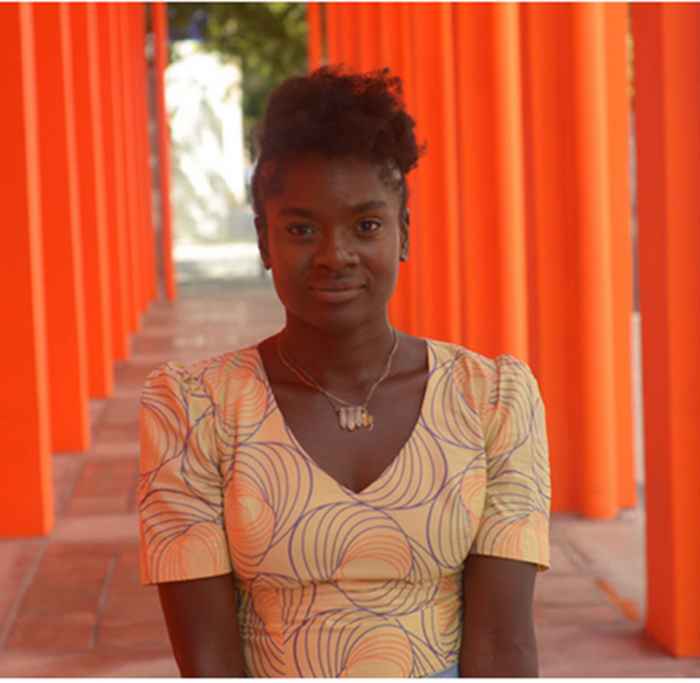True Colors: Race and Technology
- Date
- 25 April 2024
- Time
- 18:00
- Location
- Oudemanhuispoort
- Room
- C2.17

recommended Reading( 3 short pieces)
From mobile phone cameras to light sensors that run our faucets, digital technologies are ubiquitous and inescapable in our everyday life today. They are also optimized for white skin, by means of sampling, coding, and guided by will (or lack thereof) to finesse this or that aspect of a technology that assumes a false (white) universality. The ubiquity of such technologies means a non-white person will have several reminders throughout their day of their Otherness.
As a color-technician in the world of film Natacha Ikoli is often not the only woman in the male-dominated technological craft of film, but also going against the grain of digital tools that fail to do justice to non-white skin tones, by participating in Google’s Real Tone initiative.
Dutch director of photography Freek Zonderland has dedicated time and effort with key camera makers towards improving how pixels see color and will join us in weighing in how vast the potential tools are and how we keep normalizing fair skin and its narrows ideals of beauty, chromatic accuracy while postponing racial equity.
A round table conversation with UvA filmmakers/ researchers Bo Wang and Karen Sztajnberg will expose the finer implications of this problem and what we all stand to gain from correcting the ways in which mechanical technologies see color.
NATACHA IKOLI
Born in Kinshasa, Natacha first studied Cinema and Performing Arts in Paris before continuing her education in London where she earned a BA in Media and Film Production. Prior to starting her career as a DI Colorist she worked for the United Nations Children’s Fund as a video producer and editor for nearly a decade. She made her debut as a colorist assistant at Company 3, then joined Color Collective, a boutique studio famed for grading Oscar-winning narrative fiction Moonlight, for which she was a color assistant. Since 2017 she has worked as an independent colorist, her most recent credits include: 32 Sounds (Official selection Sundance 2022), Shut Up and Paint ( Official Selection Tribeca 2022), Philly D.A. ( PBS series 2021), Farewell Amor (Sundance Official selection 2020), La Cravate (2020) Swarm Season (CPHDOX Official Selection 2019), Saul At night (Black Nights Film Festival Official Selection 2019) To Dust (Tribeca Audience Award Winner 2018), Art in the 21st Century (all season 9 episodes).
KAREN SZTAJNBERG
Karen Sztajnberg is a Brazilian doctoral candidate at the University of Amsterdam and working artist who first graduated from Bard College (Film, B.A, 1997), then Columbia University (Film M.F.A, 2006). Her research topic is the circulation South American films in a transnational festival and arthouse receptive context. She has also contributed articles to Frames, Mistral Journal, Free State Review and MAI Feminism. Credited as director, editor, screenwriter, and video artist, her work has been screened at the Rotterdam Film Festival, Lincoln Center Film Society, DocFeed, HotDocs, Visions du Reel, and in many art galleries, culminating in a solo exhibition in Lisbon, Portugal.
BO WANG
Bo Wang is an artist, filmmaker, and researcher based in Amsterdam. His works have been exhibited internationally, including at the Guggenheim Museum and MoMA, Garage Museum, International Film Festival Rotterdam, CPH:DOX, Visions du Réel, LUX & Open City Documentary Festival, Seoul Mediacity Biennale & DMZ Docs, and Sharjah Film Platform, among others. He is a recipient of major international awards, including New:Vision at CPH:DOX, Golden Dove at DOKLeipzig, O.F.F. Prize at Sesc_Videobrasil, Best Doc Short at Sharjah Film Platform, etc. He is a PhD candidate at ASCA, University of Amsterdam.
FREEK ZONDERLAND
A creative autodidact and self-proclaimed hater of the term, Freek is a cinematographer, producer, and editor that has been involved in award-winning short films, documentaries, and promotional materials for organizations like Adidas, Eye Filmmuseum, and the Dutch Government. Most recently he shot the narrative short “Need” directed by Jonnah Bron which showed at IFFR 2024, and is in production with another one about skin color. In addition to his work in the field, he has sought out and been in dialog with RED Cameras with the intention of improving chromatic fidelity.
